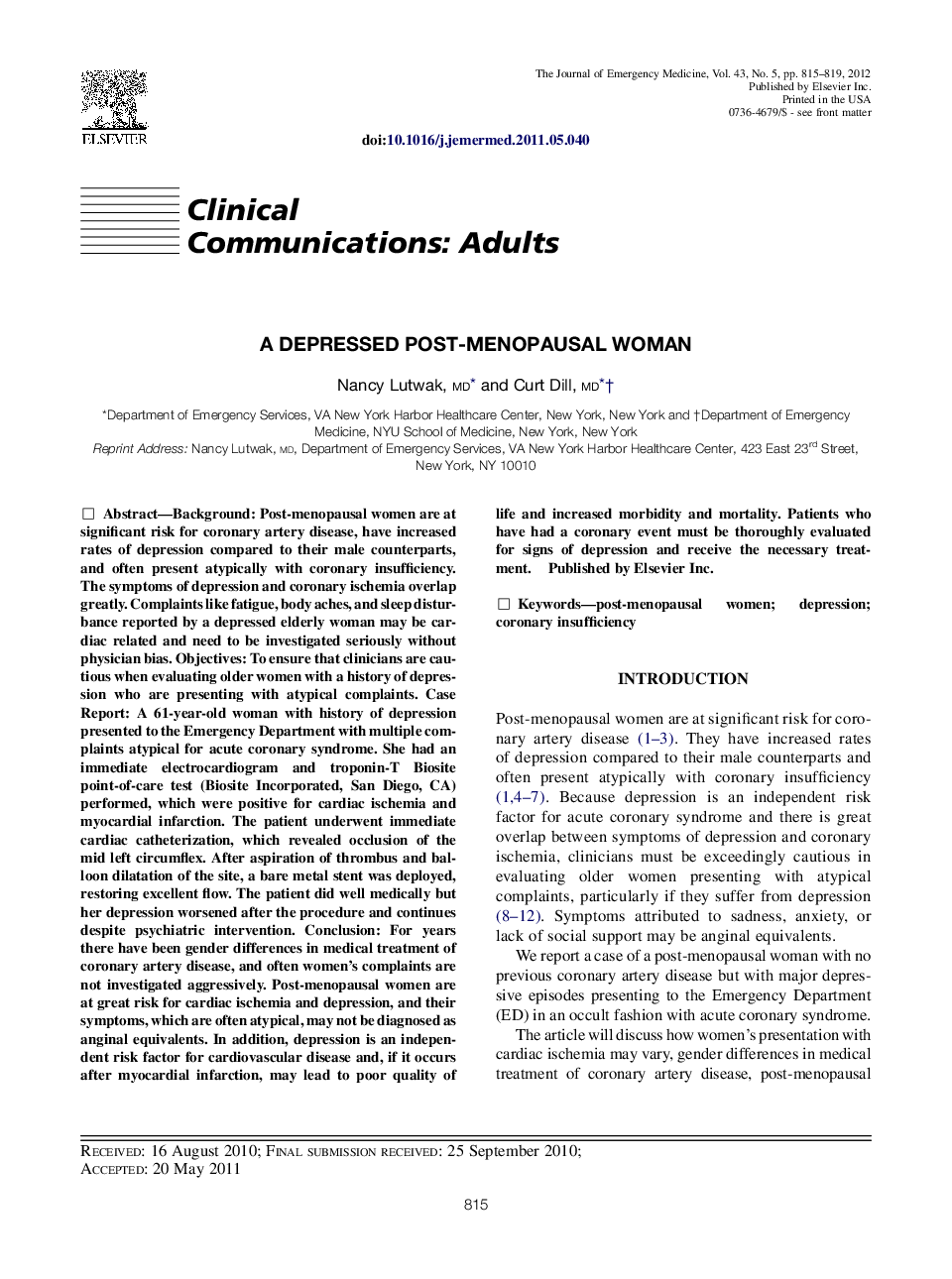| کد مقاله | کد نشریه | سال انتشار | مقاله انگلیسی | نسخه تمام متن |
|---|---|---|---|---|
| 3248772 | 1589155 | 2012 | 5 صفحه PDF | دانلود رایگان |

BackgroundPost-menopausal women are at significant risk for coronary artery disease, have increased rates of depression compared to their male counterparts, and often present atypically with coronary insufficiency. The symptoms of depression and coronary ischemia overlap greatly. Complaints like fatigue, body aches, and sleep disturbance reported by a depressed elderly woman may be cardiac related and need to be investigated seriously without physician bias.ObjectivesTo ensure that clinicians are cautious when evaluating older women with a history of depression who are presenting with atypical complaints.Case ReportA 61-year-old woman with history of depression presented to the Emergency Department with multiple complaints atypical for acute coronary syndrome. She had an immediate electrocardiogram and troponin-T Biosite point-of-care test (Biosite Incorporated, San Diego, CA) performed, which were positive for cardiac ischemia and myocardial infarction. The patient underwent immediate cardiac catheterization, which revealed occlusion of the mid left circumflex. After aspiration of thrombus and balloon dilatation of the site, a bare metal stent was deployed, restoring excellent flow. The patient did well medically but her depression worsened after the procedure and continues despite psychiatric intervention.ConclusionFor years there have been gender differences in medical treatment of coronary artery disease, and often women’s complaints are not investigated aggressively. Post-menopausal women are at great risk for cardiac ischemia and depression, and their symptoms, which are often atypical, may not be diagnosed as anginal equivalents. In addition, depression is an independent risk factor for cardiovascular disease and, if it occurs after myocardial infarction, may lead to poor quality of life and increased morbidity and mortality. Patients who have had a coronary event must be thoroughly evaluated for signs of depression and receive the necessary treatment.
Journal: The Journal of Emergency Medicine - Volume 43, Issue 5, November 2012, Pages 815–819